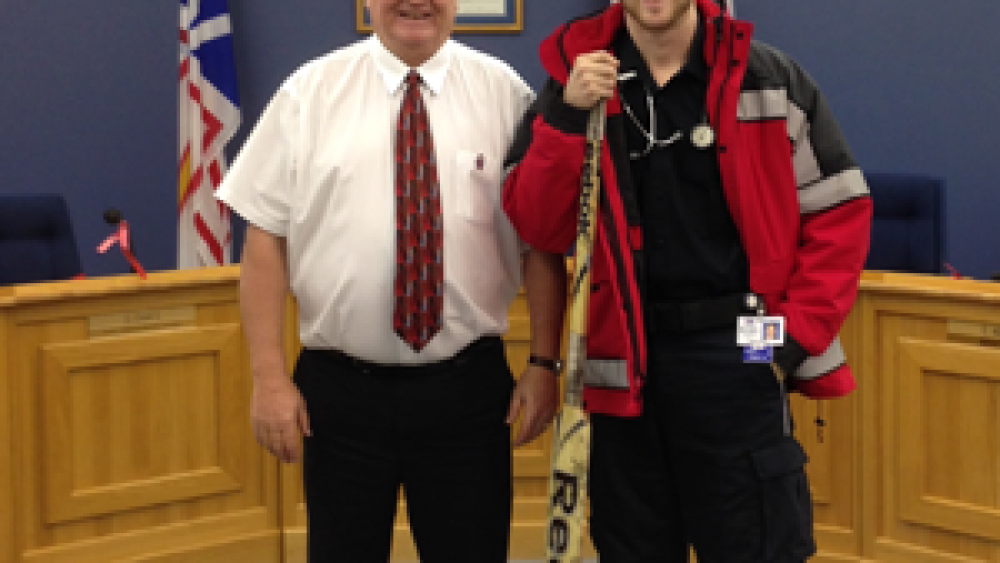NEWFOUNDLAND, Canada — Patrick O’Brien, a paramedic and goalie for the Kelly Ford Gander Flyers, was called out of the locker room by his coach for a fan that had collapsed in the stands.
“I ran out the door wearing my skates and one goalie leg pad to see if I could help,” said O’Brien, 26, who works as a paramedic for Central Health, a hospital based EMS system that covers a wide area of Newfoundland, Canada.
“Two former paramedics, Claude Elliot, the Mayor of Gander, and Tom Whalen, a hockey team executive, were already kneeling with the patient,” O’Brien said. “We quickly assessed that the patient had no pulse and was not breathing. I knelt down and started chest compressions.”
The group effort to resuscitate the fan continued for about five minutes.
“We worked as a team to resuscitate the patient,” he said.
As a June 2014 primary care paramedic program graduate, this was Patrick’s first out-of-hospital cardiac arrest experience.
“I have not had a call anything like this and could not believe what was happening,” he said. “I was relieved to be helping two former paramedics and even more so when my paramedic colleagues with 25 years of experience arrived in less than five minutes with a defibrillator.”
The patient was shocked twice on scene.
“After the second defibrillation I compressed the patient’s chest once and he reached up and grabbed my arm. We knew we had ROSC (return of spontaneous circulation),” O’Brien said.
“I was not scheduled to start the game, but was glad to go into the game during the second period. Especially after getting the news that our patient was at the hospital,” he said. Before going on the ice Shawn Tiller, the team doctor and local emergency physician, reported the patient was awake and grateful for the rapid bystander response.
O’Brien and his teammates play in a high-level amateur hockey league. The players, all former professionals, juniors, or college athletes, balance hockey with their full-time jobs or studies. Since games are only played on weekends players are able to play hockey and work.
“As a temporary, call-in paramedic there is plenty of work available for me to cover open shifts,” O’Brien said.
He said his grandfather served in Koreas a Canadian army medic, and he always knew he wanted to work in emergency services.
Although hockey “does not compare to a cardiac arrest, it has taught me to be calm in pressure-filled situations,” he said. “Hockey is also a stress reliever.”
O’Brien plans to continue his training to become an Advanced Care Paramedic.
“Before going back to school I want to get more patient care experience,” he said. “I learned from this experience the importance of starting CPR early.”












